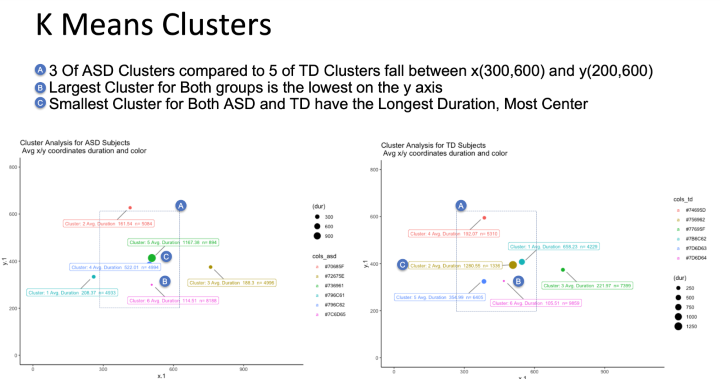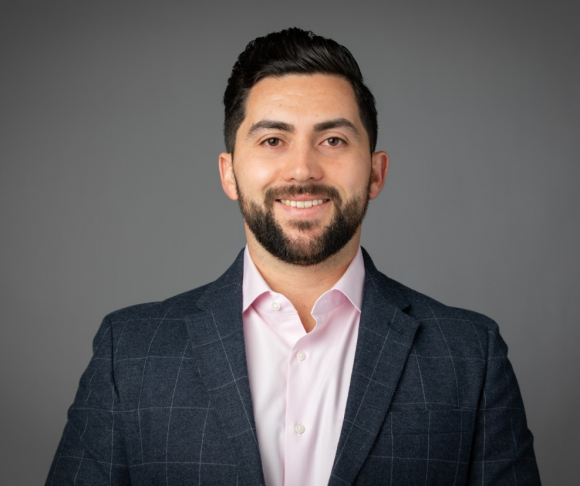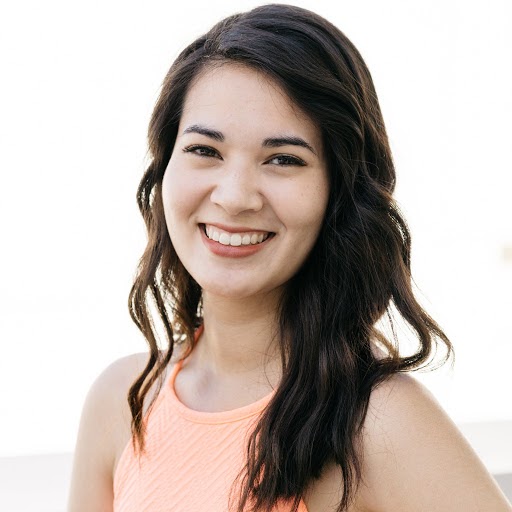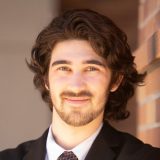
Using Machine Learning for Autism Research Computational and Data Sciences graduates use research to better understand Autism
April 19, 2021
It is Autism Awareness Month! Here in Schmid, we have a number of students working on interdisciplinary projects combining computer science, machine learning, and psychology to better understand Autism Spectrum Disorder (ADS). Two of those researchers are Dr. Raymond Anden and Dr. Chelsea Parlett, both of whom were awarded their doctorate in computational and data science this past year.

The Computational and Data Sciences Program allowed Anden to further build his foundation of Theoretical and Applied Data Science.
Anden graduated with his MBA from Chapman in 2011, then went on to Northwestern to pursue a Master’s of Predictive Analytics. While at Northwestern, he decided to pursue a Ph.D. program and realized he could continue his Chapman experience. He knew the computational and data science (CADS) program would allow him to build his foundation of theoretical and applied data science.
Anden’s dissertation is titled “Predicting eye movement and fixation patterns on scenic images using machine learning for children with Autism Spectrum Disorder (ASD).” He says, “In this research, I aim to predict where a child with ASD is fixating on a scenic image (images of landscapes, animals, buildings, plates of food, etc) and compare with the ability to predict where a child that is typically developing is fixating. I translate each pixel on an image (point on an image) into a Red/Green/Blue color scale which is used along with the pixels x & y coordinates to create metadata about each point on an image. Using this metadata I then tested various machine learning algorithms to find the most predictive. For both sets of patients, gradient boosting proved to be the most predictive in identifying where patients were fixating on an image. I found that typically developing children are a bit more consistent in where they fixate and those models proved to be slightly more accurate.”

Dr. Chelsea Parlett is now an instructor for Fowler School of Engineering. She specializes in unsupervised machine learning and bayesian statistics.
Parlett has a strong background in psychology. “I have loved getting to use that baseline knowledge to apply my computational and data skills better. You cannot do good, ethical, and impactful data science without considering the context of the data, and my past experience with the behavioral sciences has allowed me to be a part of connecting experts on both sides.” She chose the CADS program when she realized the small and personalized program would best suit her research interests and learning style.
Now as a faculty member of Fowler School of Engineering, her research focuses on ADS diagnosis. “One of the main [research projects] focuses on how we can use unsupervised machine learning (ML) to detect groups of individuals or behaviors that are similar. While these subgroups don’t tell the whole story of the experience of an individual with ASD, and shouldn’t be viewed as cut and dry labels that describe someone’s experience, they can in some cases help clinicians figure out which behaviors are related, or whether some groups respond well to certain therapies. Unsupervised ML allows us to explore these groupings and test whether or not they help clinicians personalize therapy and support.”
Both Anden and Parlett expressed hope and excitement about the future of ADS research using machine learning. Parlett says, “There’s so much more good research to be done. While writing the survey of how Unsupervised ML is used in ASD research, I was shocked by how much more we could do in this small intersection of fields.” Anden agrees and added that he was surprised by the interdisciplinary opportunities in this field. “What surprises me most is the opportunity that is out there for this type of analytical research. One huge opportunity is to continue to gather data sets and experiments on ASD subjects that can aid in both diagnosis and treatment.”
Learn more about the Ph.D. in Computational and Data Sciences Program.
Cover Photo: Anden’s cluster analysis for ASD and typically developing subjects.

